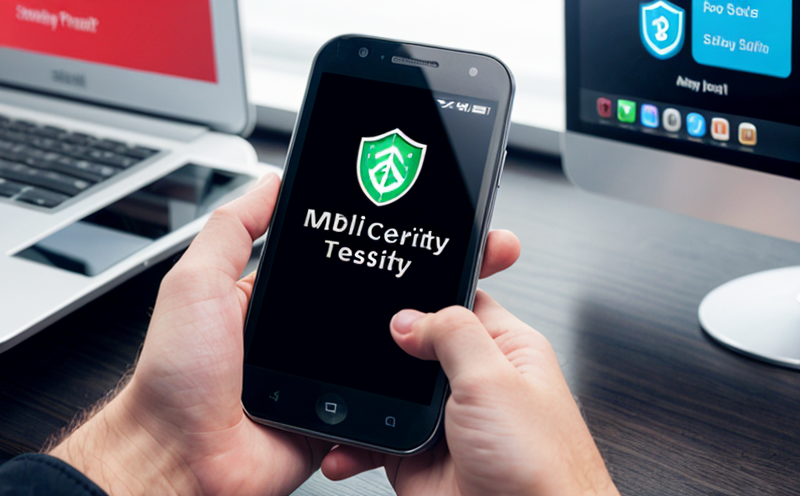Phishing and Social Engineering Simulation Testing in Mobile Apps
The digital landscape has evolved significantly, with mobile applications becoming a critical platform for communication, transaction, and data exchange. This evolution, however, brings new challenges—most notably the risk of phishing attacks and social engineering tactics that exploit vulnerabilities within these applications.
Phishing and social engineering simulation testing in mobile apps is an essential service designed to evaluate the security resilience of mobile applications against such threats. By simulating real-world scenarios where attackers might attempt to deceive end-users into divulging sensitive information, this testing ensures that developers and organizations can identify weaknesses early on before they are exploited by malicious actors.
Our laboratory employs a multi-faceted approach to conduct these tests, which involves the creation of realistic phishing emails, websites, or voice calls that mimic those used in actual attacks. These simulations aim to assess not only the technical aspects but also the behavioral elements necessary for effective defense against such threats. Understanding human behavior is crucial as attackers often exploit psychological vulnerabilities rather than purely technical ones.
One key aspect of our service is the provision of detailed reports outlining all findings and recommendations for improvement based on the simulated attacks. These reports are tailored to meet specific organizational needs, ensuring that both technical and non-technical stakeholders have clear insights into potential risks and mitigation strategies. Additionally, we offer training sessions aimed at enhancing user awareness about phishing tactics and best practices in securing personal information.
The demand for robust security measures has never been higher, especially given recent high-profile incidents involving data breaches due to compromised mobile applications. By investing in regular testing through our laboratory, organizations can protect themselves against increasingly sophisticated cyber threats while maintaining a competitive edge in today’s digital economy.
Applied Standards
The importance of adhering to recognized standards cannot be overstated when conducting phishing and social engineering simulation testing. Our laboratory strictly follows internationally accepted guidelines to ensure that our tests are both comprehensive and reliable.
- ISO/IEC 17025: This standard sets the requirements for competence of bodies providing testing and calibration services, ensuring that we maintain high levels of quality and accuracy in all our operations.
- ASTM E2846: Specifically addressing cybersecurity practices within software systems, this standard guides us on how to effectively simulate phishing attacks and analyze their impacts.
We also stay updated with the latest developments from sources like OWASP (Open Web Application Security Project) which provides best practices for secure coding and development processes. By incorporating these standards into our testing methodologies, we guarantee that every aspect of your mobile application’s security is thoroughly examined under realistic conditions.
Scope and Methodology
| Test Scenario | Description |
|---|---|
| Email Phishing Simulation | Creation of authentic-looking emails designed to trick users into clicking on malicious links or downloading suspicious attachments. |
| Social Engineering Scenarios | Incorporation of various social engineering techniques such as pretexting, baiting, and quid pro quo attacks tailored to the specific app functionality. |
| Usability Testing | Evaluation of how easily users can navigate through simulated phishing attempts without triggering alerts or reporting. |
The methodology involves several stages: initial assessment, simulation setup, execution, observation and recording, debriefing sessions with stakeholders, and finally generating detailed reports complete with actionable recommendations. Each stage is meticulously planned to cover all possible angles of attack, ensuring no stone is left unturned in identifying potential vulnerabilities.
Competitive Advantage and Market Impact
- Proactive Defense: By identifying and addressing security flaws early, organizations gain a significant advantage over competitors who may only react after incidents occur.
- User Trust Enhancement: Demonstrating commitment to data protection through rigorous testing can greatly enhance customer confidence and loyalty.
In today’s market where trust is paramount, businesses that prioritize cybersecurity measures like our phishing and social engineering simulation testing stand out. Our service helps companies maintain their reputation as reliable partners in the digital age while fostering a safer online environment for all users.





